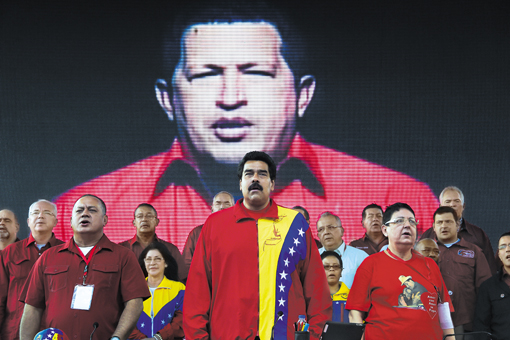President Nicolás Maduro inherited a dramatically changed country—and economic situation—when he came to power following Chávez’ death from cancer in 2013. Within a year of Maduro’s election in March 2013, oil prices had started a steady decline. And as investment in the industry also dropped, production fell to 2.62 million barrels per day (bpd) from 3.48 million bpd when Chávez was sworn in to office.1 To complicate matters, the rapidly deteriorating economy, combined with Maduro’s lack of charisma and narrow margin of victory in the election—1.49 percent—were further domestic constraints on Chávez’ handpicked successor.
While Maduro has continued to espouse the same aggressive, revolutionary rhetoric, the deterioration of both his domestic standing and of Venezuela’s international economic and diplomatic leverage raises the question of whether the former bus driver-turned-president will pursue a more isolationist, even pragmatic, foreign policy. And perhaps just as critically, it has raised doubts about whether the internationalization of the Bolivarian Revolution started by Chávez will continue.
There is a long history of foreign policy activism in Venezuela. The president’s domestic political power and his corresponding ability to assert executive autonomy in pursuing his definition of the national interest abroad are two of the determining factors for assertive foreign policy. A third is the scope for action provided by objective international conditions. When these conditions are not in place, Venezuela lowers its foreign policy profile.
Three distinct phases illustrate this: the Betancourt Doctrine under President Rómulo Betancourt (1959–1964); The Great Venezuela under President Carlos Andrés Pérez’ first term (1974–1979), and the Bolivarian Revolution under President Hugo Chávez (1999–2013)…





